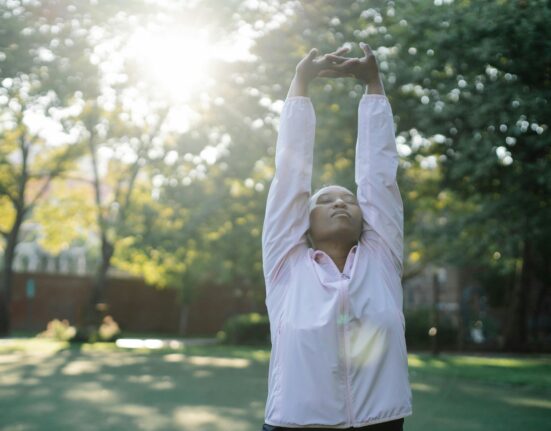Stress has become a constant companion for so many of us. From endless to-do lists to sleepless nights, it’s easy to feel overwhelmed before the day even begins. But how you start your morning can set the tone for everything that follows. By adopting simple, natural habits, you can reduce stress and approach your day with a clearer, calmer mind. If you’re looking for better mornings, you’re in the right place.
The Role of Mornings in Reducing Stress
Your morning routine isn’t just about waking up—it’s a foundation for the rest of your day. How you manage those precious early hours determines whether you step into your day with calm focus or fall prey to stress. Let’s explore how certain actions—or inactions—impact your stress and why those first moments after waking are prime time for embracing healthier practices.
How Stress Can Build Up From Morning Choices
Picture this: your alarm blares, you’re already late, and a quick glance at your phone drags you into a stream of unread emails. Next, you’re running out the door without breakfast, clutching coffee like a lifeline. Sound familiar? Unfortunately, these chaotic choices can snowball and set a stressful tone for the rest of the day.
- Rushing immediately elevates your cortisol levels. When you’re in a hurry, your body enters “fight or flight,” releasing stress hormones that make it harder to stay focused and calm throughout the day.
- Skipping breakfast can drain your physical and mental energy. Without fuel, your brain struggles to function optimally, leaving you more prone to irritability and poor decision-making.
- Negative habits, like doom-scrolling or excessive caffeine, overstimulate your brain, reducing your ability to handle challenges later.
Research supports this too—certain morning habits have been linked to higher cortisol spikes, making it harder for many to recover their sense of calm read more here.
If mornings feel like a chaotic mess, it’s easy to carry that tension into everything you do next. With a few clear adjustments, though, you can turn your mornings into a stress-relief zone.

Photo by Miriam Alonso
Why Morning Is the Best Time for Calm Practices
The morning holds untapped potential to reset your mind and body. Why? After a good night’s sleep, your cortisol levels naturally peak in the early hours. This is your body’s way of helping you wake up feeling alert. However, the way you handle this surge makes all the difference.
- Intentional practices like mindfulness or light stretching during this time can smooth cortisol levels, putting you in a proactive state instead of a reactive one.
- Starting slow allows your body to transition gradually. Engaging in simple activities like reading, meditating, or even sipping a nourishing tea can anchor your thoughts before external stressors seep in.
- Consistency is key. Research has shown structured routines can improve focus, reduce anxiety, and keep stress hormones under control. Predictability, in this case, becomes your emotional safety net (source).
Think of your morning as a blank canvas. How you fill it determines the mood and productivity of your entire day. Swap those chaotic starts for thoughtful moments of calm, and you’ll notice a shift—not only mentally but physically as well.
When aligned with natural rhythms, your mornings can be more than rushed errands—they can become a powerful tool for managing stress.
Morning Practices That Calm Your Mind
Mornings are an opportunity to reset. Adopting mindful practices in your morning routine can lower stress, bring clarity, and prepare you for the challenges ahead. Let’s explore how you can step into your day feeling calm, grounded, and ready.
Start With Deep Breathing Exercises
Deep breathing is a gateway to relaxation. When you breathe deeply and intentionally, your body transitions from the “fight or flight” stress response into a calm, “rest and digest” state. One effective method? Box breathing.
Here’s how it works:
- Inhale deeply through your nose for 4 seconds.
- Hold your breath for 4 seconds.
- Exhale slowly through your mouth for 4 seconds.
- Hold again for 4 seconds.
Repeat this cycle a few times to feel more centered. Studies show that mindful breathing can drastically reduce stress levels, making it an essential tool for a peaceful morning. For more on specific techniques, you can explore breathing exercises to reduce stress.
 Photo by RF._.studio.
Photo by RF._.studio.
Practice Gratitude Journaling
Journaling isn’t just a creative outlet—it’s a proven stress buster. Gratitude journaling shifts your mindset toward positivity. Each morning, take five minutes to write down three things you’re grateful for. These could be small, like a good night’s sleep, or significant, like the support of a loved one.
Research suggests gratitude journaling enhances mood and decreases stress hormones over time. It reframes challenges, helping you build resilience against daily stressors. If you’re curious about its benefits, check out practicing gratitude for stress relief.
Avoid Instant Access to Technology
Reaching for your phone first thing in the morning? It’s tempting but detrimental. Checking emails or scrolling through social media immediately triggers an information overload that ratchets up stress levels. Starting your day onscreen often pulls you into others’ agendas before addressing your own needs.
Instead, create a tech-free window in your morning routine. Use that time to stretch, read, or enjoy a quiet breakfast. This habit allows you to stay present, easing into the day on your terms. For more tips, explore why you shouldn’t turn on devices first thing in the morning.
Drink a Glass of Water Before Coffee or Tea
Before sipping your morning coffee or tea, start the day with a full glass of water. Why? Overnight, your body becomes dehydrated, which can heighten feelings of tension and stress. Rehydrating first thing helps regulate your energy and improves focus throughout the morning.
Water also aids in reducing the physiological effects of stress by supporting your nervous system. A hydrated body fosters a clearer, calmer mind. Plus, as much as we love caffeine, it can exacerbate jitters when consumed on an empty stomach. Learn more about hydration’s role in reducing stress.
By building these simple steps into your morning, you’ll set yourself up for a less stressful, more mindful day, anchored in calmness and clarity.
Physical Activities to Kickstart a Stress-Free Day
Mornings are the perfect time to engage in physical activities that not only wake you up but also help you reduce stress naturally. Whether you’re looking to feel more centered, calm your mind, or boost your energy levels, movement is a simple yet powerful tool. Here’s how you can use yoga, nature, and exercise to set a positive tone for your day.
Opt for Morning Yoga or Stretching
Engaging in just 10–15 minutes of yoga or stretching in the morning can be a game-changer for stress management. Yoga encourages both mental and physical relaxation by reducing cortisol levels—the hormone related to stress—and improving flexibility. Even basic yoga poses such as the Child’s Pose or Sun Salutations are designed to relax your body and steady your breathing. Think of it as hitting the “reset” button for your mind and muscles.
Stretching is equally beneficial, as it releases tension built up in your body overnight. Those tight shoulders from sleeping or sitting can feel more open with just a few targeted movements. This gentle activity sends signals for your nervous system to relax. It’s less about nailing the perfect pose and more about loosening up and finding your balance.
For an in-depth guide, see Yoga for Stress: Breath, Poses, and Meditation to Calm.

Photo by Polina Tankilevitch
Take a Short Walk in Nature
Stepping outside for a 10- to 20-minute walk can do wonders for your mental health. Why? Fresh air and natural sunlight work together to create a calming effect. This isn’t just anecdotal; studies show that spending time in nature lowers cortisol levels and helps reduce symptoms of anxiety and stress.
Beyond the science, there’s something inherently soothing about the sights and sounds of nature. The swishing leaves, birds chirping, or even the quiet rustle of wind have a grounding effect. Walking in a green space, even if it’s just a local park, can also help lower your heart rate and blood pressure.
If you’re curious about how nature affects your mental state, check out Spend Time in Nature to Reduce Stress and Anxiety.
Incorporate a Quick Workout
For those who prefer a more energetic start, a short workout is one of the most effective mood boosters. Physical activity triggers the release of endorphins, the body’s natural “feel-good” chemicals that help fight stress. You don’t need an intense session to reap the benefits—a 15-minute bodyweight routine or light cardio will suffice.
Exercise isn’t just good for your body; it activates your brain in positive ways. It helps reduce adrenaline and cortisol, while also increasing blood flow, giving you better focus and emotional resilience. Whether it’s a quick HIIT session, jumping jacks, or simple squats, moving your body first thing sharpens both your energy and your mindset for the day ahead.
Learn more about how exercise can reduce stress in Working Out to Relieve Stress.
By making room for these physical activities in your morning, you’re not only improving your physical health but also nurturing your mental well-being. Each of these practices offers a simple yet impactful way to destress before stepping into your daily hustle.
Creating a Sustainable Morning Routine for Stress Reduction
A sustainable morning routine isn’t about perfection—it’s about creating a structure that grounds you while staying adaptable to life’s shifts. When mornings feel manageable and tailored to your needs, they can become a stress-free foundation for the rest of your day.
Start With Small, Manageable Changes
Creating a morning routine doesn’t mean reinventing your entire life overnight. Think of it like planting a garden: you wouldn’t try to sow every seed all at once. Begin with one or two simple habits. This approach is not only less overwhelming but far more sustainable.
For example, you could start by:
- Drinking a glass of water as soon as you wake up.
- Taking five minutes for deep breathing or stretching.
- Writing down one thing you’re looking forward to that day.
Small steps are powerful. They create momentum without adding pressure. Plus, as each habit becomes second nature, you’ll find it easier to layer in additional practices. According to experts, starting with one doable change keeps you consistent and motivated learn more here.
Adjust Based on Personal Preferences
Your morning routine should feel like you. Not everyone thrives with a 5 AM workout or a 30-minute meditation, and that’s okay! The beauty of a routine lies in its personalization. If you’re not a “morning person,” opt for activities that ease you into the day without feeling forced.
Here are some great ways to tailor your routine:
- For creative thinkers: Try journaling or sketching for 10 minutes.
- For physical energy seekers: A brisk walk or yoga would do wonders.
- Prefer a quiet start? A simple act like sipping tea while watching the sunrise can provide a meditative moment.
Listen to your energy levels and preferences. What feels relaxing and productive to one person might feel stressful to someone else. Experiment and tweak as you go. Need inspiration? See how others build routines that resonate with their lifestyle.
Stay Flexible and Be Kind to Yourself
Even with the best intentions, there will be mornings when the snooze button wins or life demands an immediate pivot. And guess what? That’s completely fine. A sustainable routine isn’t about unrelenting discipline—it’s about creating habits that adapt to your real-life needs.
Missed a morning meditation? Shorten it to two minutes or swap it for mindful breathing while brushing your teeth. Didn’t journal today? Simply reflect on your gratitude while driving to work. Flexibility allows you to get back on track without guilt.
Remember, self-compassion is critical in reducing stress. Beating yourself up for a skipped task serves no purpose. Instead, focus on regrouping and celebrating what you can do tomorrow. To dive deeper into the stress-reducing benefits of kind self-talk, check out this resource.
By embracing small actions, personalizing your routine, and allowing room for flexibility, you’ll create a morning ritual that nurtures calm and reduces stress every single day.
Conclusion
Starting your day with intention makes a huge difference. Simple practices like deep breathing, gratitude journaling, or morning yoga can shift your mindset and set a calm tone for the rest of your day. Small choices—like drinking water before caffeine or stepping outside for fresh air—help you feel more grounded and in control.
Remember, your mornings don’t have to be perfect. They just need to prioritize your well-being. Whether it’s a two-minute stretch or a quiet moment without your phone, every intentional step counts.
What changes will you make to create a stress-free morning? Start small, stay consistent, and notice how these habits improve not just your mornings but your whole day.








